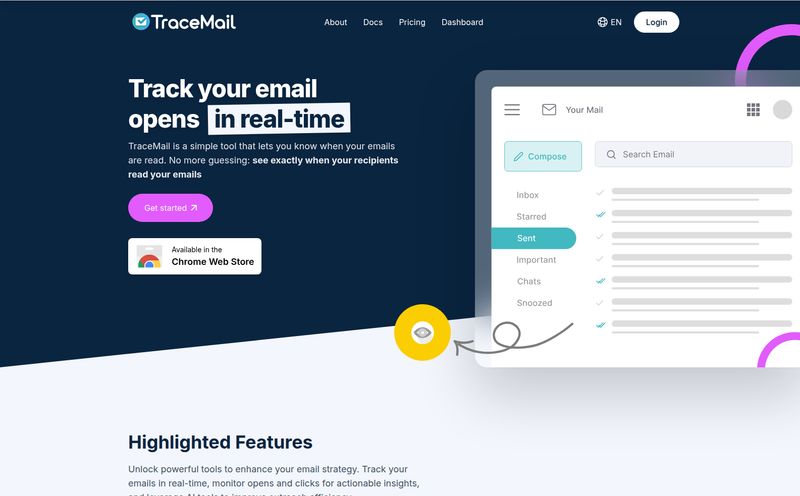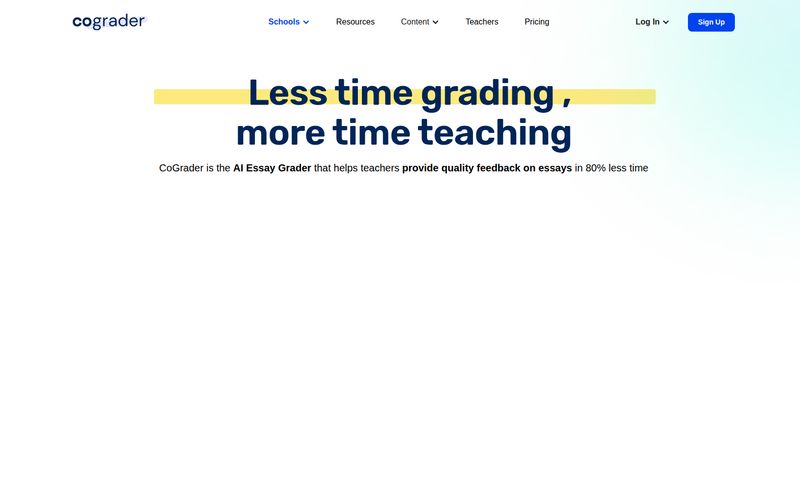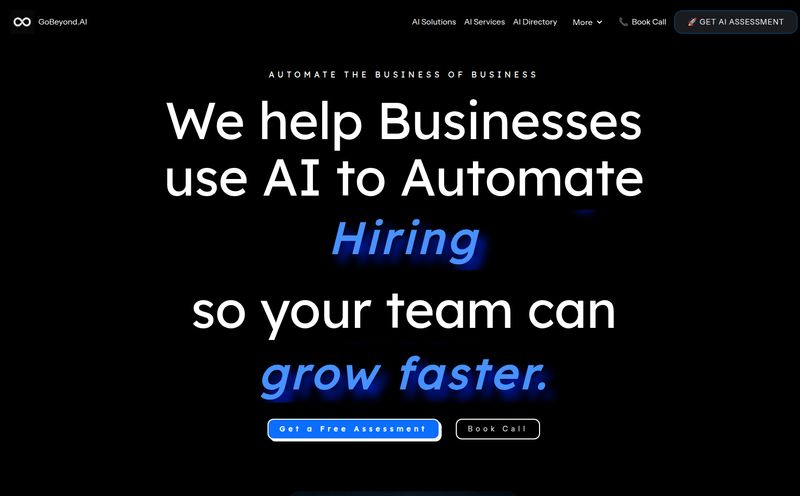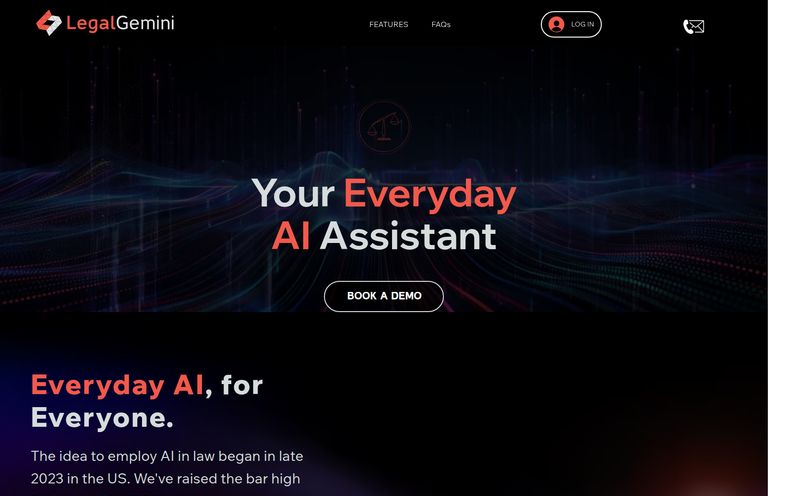Keeping track of your money in this day and age is a special kind of chaos. You’ve got your checking account over here, your 401(k) with a company you left three years ago over there, some stocks in an app, and maybe a little crypto tucked away on a wallet whose password is a prayer. Trying to get a single, clear picture of your actual net worth? Forget it. It's a mess. A beautiful, complicated, anxiety-inducing mess.
For years, I've been duct-taping my financial picture together with a Frankenstein's monster of a spreadsheet. It’s a beast of a file, full of manual entries, broken formulas, and a column for “miscellaneous” that’s doing some very heavy lifting. Every month, I promise myself I’ll update it. And every month, I find something—anything—else to do. Like alphabetizing my spice rack. So when I stumbled upon 7Assets, with its slick, dark-mode interface and promises of AI-powered organization, my interest was definitely piqued. Could this be it? The one dashboard to rule them all?
So, What Exactly is 7Assets?
Think of 7Assets as a super-smart digital filing cabinet for your entire financial life. It's a platform designed to pull all your disparate assets into one single, unified view. We're not just talking about your bank balance. We’re talking about everything: cash flow, real estate, stocks and bonds, cryptocurrencies, precious metals, maybe even that vintage watch collection you've insured. The platform uses AI to automatically collect and organize this data, giving you a holistic overview of your wealth without you having to lift a finger (well, after the initial setup, anyway).
Now, here’s a crucial point: 7Assets is not a financial advisor. It's not going to tell you to buy Dogecoin or sell your Apple stock. It doesn't sell any financial products at all. It's a pure-play organizational tool. A mirror for your money. Its job is to show you what you have and where you have it, all in one clean, digestible dashboard.
The Problem 7Assets Tries to Solve
The core problem is fragmentation. Your wealth isn't in one place, so why should your wealth overview be? The value of your home is on Zillow. Your stock portfolio is on Fidelity. Your crypto is on Coinbase or a Ledger. Your emergency fund is in a high-yield savings account. Getting these to talk to each other is impossible, and the mental load of tracking them all separately is, frankly, exhausting.
This is where the promise of a tool like 7Assets really shines. The whole idea is to automate the tedious process of aggregation. Connect your accounts once, and the platform does the work of keeping things up-to-date. It aims to turn hours of monthly spreadsheet misery into a quick, two-minute glance. That’s the dream, right?
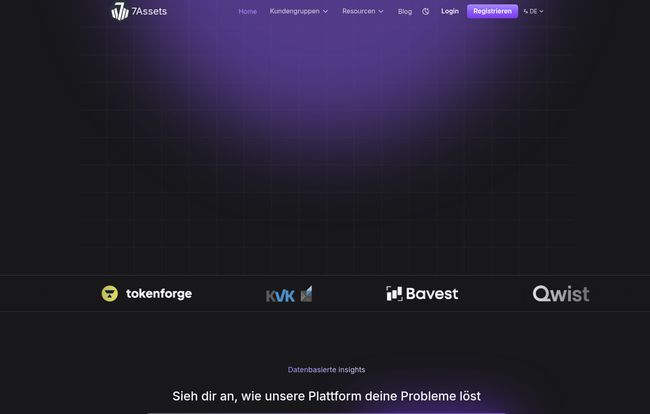
Visit 7Assets
My First Impressions and Key Features
Hopping onto their site, the first thing that hits you is the design. It's clean, modern, and has that cool, techy dark-mode aesthetic that feels very current. It doesn't look like a stuffy, old-school banking website, which is a massive plus in my book. It feels more like a tool built for people who actually live on the internet.
A Single Pane of Glass for Your Wealth
This is the main event. 7Assets isn't just a budget tracker. It’s built to handle a diverse portfolio. The platform can supposedly integrate data from your bank accounts, brokerage depots, crypto wallets, and even allows for manual entry for things like real estate and other valuables. The goal is to provide that elusive, genuine net worth number, in real-time. For anyone who has assets spread across multiple classes, this is a huge deal.
The AI "Magic"
"AI-powered" is a term that gets thrown around so much it’s almost lost all meaning. So what does it mean here? In the context of 7Assets, it's about intelligent data analysis. The AI helps categorize your transactions, analyze your cash flow trends, and present insights you might not spot on your own. For instance, it could show you how your investment allocations are shifting over time or project your cash flow based on past behavior. It’s less about a robot giving you hot stock tips and more about a smart assistant keeping your financial records impeccably organized.
Connecting the Dots (Literally)
The engine behind all this automation is its ability to connect directly to your banks and other financial institutions. Using secure bank interface connections (think Plaid or similar services), it pulls your data automatically. This is the feature that makes or breaks a tool like this—it's the difference between a dynamic, living dashboard and another dead spreadsheet.
The Good, The Bad, and The AI
Alright, no tool is perfect. Let's get into the nitty-gritty. Based on what I've seen and the information available, here's my breakdown.
On the plus side, the time-saving aspect is undeniable. Automation is a godsend for busy professionals or anyone who just has better things to do than data entry. The comprehensive view, covering everything from crypto to real estate, is a major differentiator from simpler budget apps. And I have to say it again, the user interface looks fantastic. I’ll take a slick, intuitive dashboard over a clunky, ad-filled portal any day of the week.
However, we need to have some real talk about the downsides. First up is the trust hurdle. To get the full benefit, you have to connect all your financial accounts to a third-party platform. Even with promises of bank-level security and secure data management, that's going to be a non-starter for some folks. It’s a personal comfort-level decision, and there’s no right or wrong answer.
Then there’s the biggest head-scratcher for me: it's a web-based platform only. No mobile app. In 2024, that feels like a pretty significant omission. I want to be able to check my net worth while waiting in line for coffee, not be tethered to my laptop. I’m hoping an app is high on their roadmap, because for many, its a dealbreaker.
Finally, the reliance on AI won't be for everyone. Some of us are control freaks (guilty) who like to categorize every transaction manually. We might not trust an algorithm to understand the nuance of our finances. This isn't really a flaw of 7Assets, but a matter of user preference.
Who Is 7Assets Actually For?
This tool isn’t for the person whose financial life consists of a single checking account. It would be overkill. Instead, I see the ideal user as a moderately to highly diversified individual. Someone who’s juggling a salary, some stock investments, a retirement account, a little crypto on the side, and maybe owns their own home. They are tech-savvy, appreciate good design, and value their time highly enough to embrace automation. If your financial life is starting to feel like you need a personal CFO, but you can't afford one, 7Assets could be the next best thing.
Let's Talk About the Price... Or Lack Thereof
Here’s an interesting wrinkle: as of my review, there is no public pricing information on the 7Assets website. What does that mean? Typically, this signals a few possibilities. The platform could still be in a beta phase, working with early adopters to refine the product. It could be planning a 'freemium' model, where a basic version is free and premium features cost money. Or, it could be targeting a more specific, high-net-worth client base with custom pricing. My gut tells me it's likely the first or second option. For now, your best bet is to sign up for their newsletter or register on the site to get updates.
Frequently Asked Questions about 7Assets
What is 7Assets in simple terms?
It’s a smart digital dashboard that connects to all your financial accounts (banks, brokerages, etc.) to give you a complete, automated overview of your entire net worth in one place.
Is 7Assets a financial advisor?
No, it is not. 7Assets does not provide financial advice or sell any financial products. It is strictly an organizational and analytical tool to help you see and manage your own assets.
Is it safe to connect my bank accounts to 7Assets?
7Assets states it uses secure bank interface connections and prioritizes data security. However, connecting financial accounts to any third-party app always involves a degree of trust. You should always do your own due diligence on any platform's security protocols.
What kinds of assets can I track with 7Assets?
It's designed to be comprehensive. You can track cash flow, bank accounts, securities (stocks, bonds), cryptocurrencies, precious metals, and even manually add valuables like real estate or collectibles.
Does 7Assets have a mobile app?
Currently, no. 7Assets is a web-based platform only. There is no dedicated iOS or Android app at this time.
Who is 7Assets best suited for?
It's best for individuals with diversified assets across multiple platforms who want an automated, all-in-one view of their wealth and are comfortable with modern, tech-driven solutions.
My Final Verdict on 7Assets
So, is 7Assets the holy grail of financial dashboards? It’s too early to say for sure, but it's one of the most promising contenders I’ve seen in a while. The concept is exactly what the market needs, the design is spot-on, and the focus on a broad range of assets including crypto and real estate is incredibly smart.
The lack of a mobile app is a definite drawback, and the universal hurdle of account security will always be a factor. But I'm cautiously optimistic. The dream of ditching my monstrous spreadsheet for a clean, smart, automated dashboard is very, very appealing. 7Assets is taking a solid swing at making that a reality, and I'll be keeping a close eye on how it develops. It might just be the tool that finally brings some order to my financial chaos.
